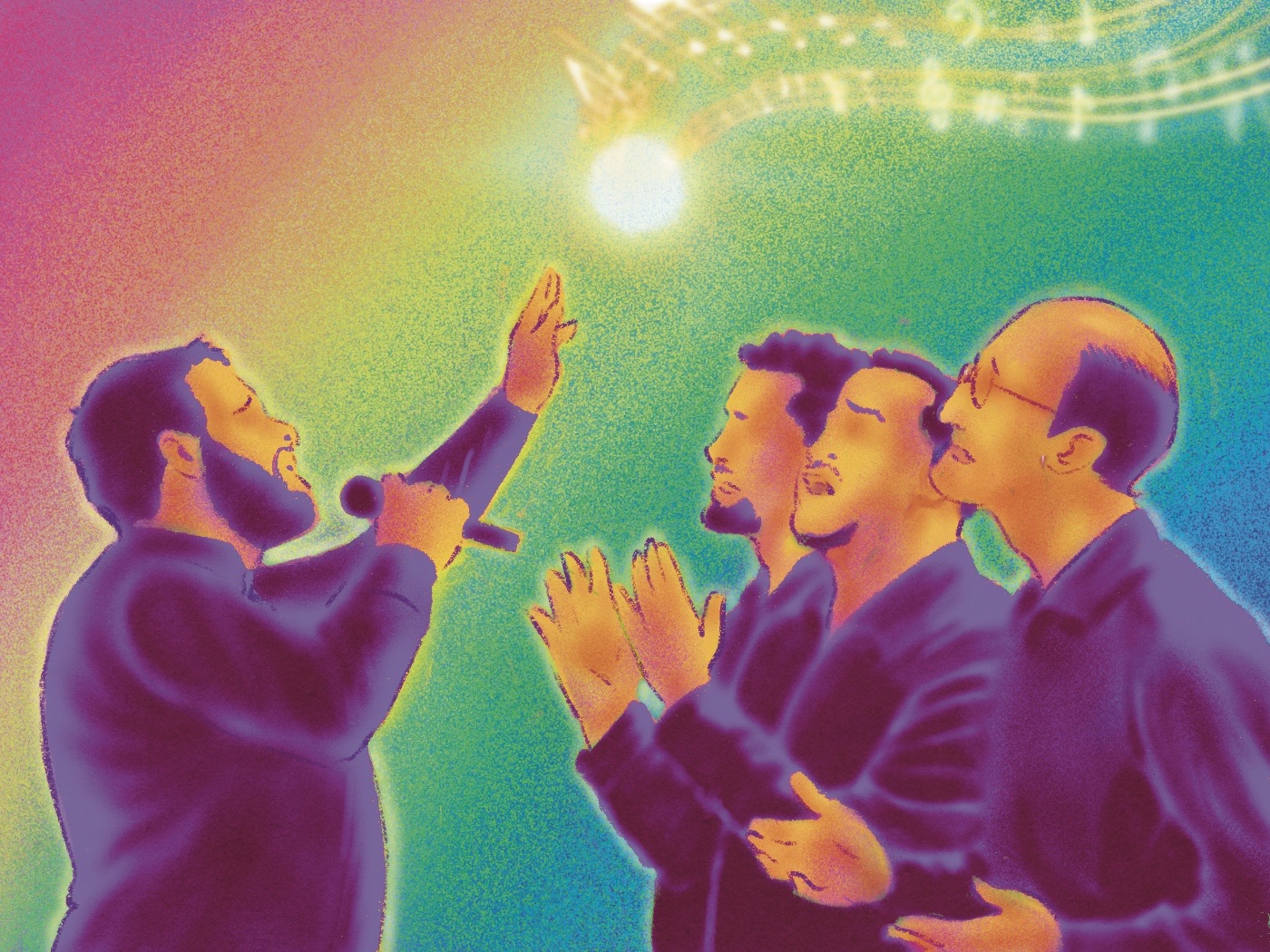By Carlos Deleon

The first time I sang with the intention “I’m here to sing to you” was at a funeral.
A fellow singer had passed away right before my first concert with the local gay men’s chorus. Big city or not, a gay community is a small town, so I knew of him, though we’d never interacted much. When the director asked for volunteers to sing at his funeral, I hesitated. I can’t just jump in. But when I learned we’d be singing “Seasons of Love,” from the musical Rent, and “For Good,” from Wicked—both favorite songs of mine—I raised my hand.

Arriving at the funeral home, I was all nerves. After I took my seat, I saw one of my friends walk in. Though I’d known him before I joined the chorus, after months of Sundays singing and walking home together, a deeper friendship had solidified. Sitting down next to me that day of the funeral, he pressed his hand against my leg to calm my fidgeting.
“This is hard,” he said. I nodded recognition and offered my hand. We were two humans feeling different losses in a worldwide pandemic, but feeling them together.

With no warning, warm-up, or rehearsal, it was time to sing. I had the sheet music on my iPad and knew the tunes but had never sung these songs with a chorus. I looked out at the strangers staring at me in a dress shirt that possibly still had a tag on the back. As the pianist started playing, I pressed “record” on my iPad. I knew I’d want to hear these songs again.
I’d listened to “Seasons of Love” countless times before, but singing it made the lyrics feel new. The words became sacred incantations, summoning a path for me out of the past. The song helped me measure the seconds since my shoulda-been-husband had died alone in a hospital. He’d gone silent months before the pandemic took hold, after another round in our “are we or aren’t we?” relationship. That last time he had walked away, furious with me, he’d never told me why.
Through singing in a community of voices about the ways we measure love, my body began to relax; some of my pain lifted as well. I wished it well, along with some of the difficult memories I’d been clinging to.
Chance placed me next to the soloist that day. His voice filled the room. My voice blended smoothly into the sound supporting his soaring vocals. Within that harmony, I found my seat at the table. It wasn’t the seat I’d grown accustomed to—the seat marked “I love you, but I’m not in love with you.” The new seat I was claiming was marked with only my name.

The song “For Good” followed “Seasons of Love.” The baritones took the lead, and my voice began to quaver. When I felt myself beginning to fall apart, I leaned into the voices around me and discovered I could breathe inside their sound. I relaxed and slipped back in. This was new for me—falling apart had always meant the end of everything; falling apart had always meant disaster. But that day, the other baritones did not leave me on my own. Trusting others to sing with me finally felt safe.

Later, when I pressed “play” on my iPad while I sat in my car parked miles away, I could hear my voice singing out sincerely and securely. That’s when I began to understand I’d attended many funerals at once, grieving the people I’d loved and lost and grieving so many parts of myself—now gone.
It may sound cliché to say that singing saved my life, but singing at the funeral that day felt like the start of me saving myself. Now, when I find myself questioning whether it’s possible to be the person I need to be, I remember how it feels to trust others to hear what pours out of me, and to trust the music we’ve made.
Carlos Deleon lives, writes, and sings in Chicago, Illinois. A product manager by day, Carlos explores transformation through loss in his creative writing, working to unravel what it means to live in these unprecedented times.